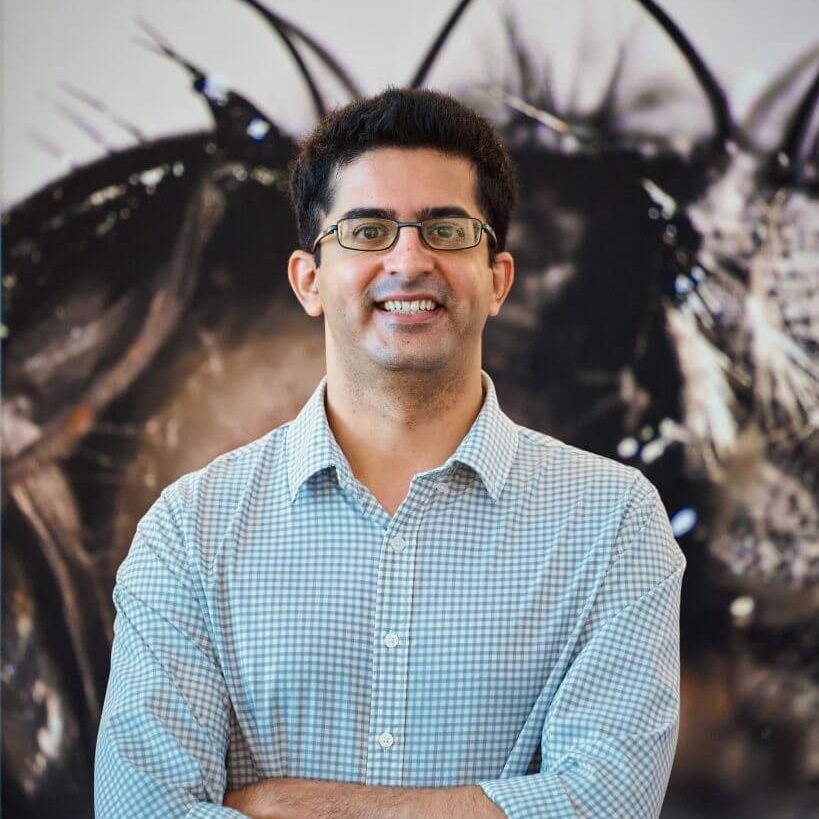
Dr. Bidaye started his Research Group Leader position at the Max Planck Florida Institute for Neuroscience in April 2021, leading the Neuronal Control of Locomotion group. His research focuses on understanding how fast and precise locomotor decisions are executed at the level of genetically defined neural circuits.
Prior to this Dr. Bidaye was a Postdoctoral Fellow at the University of California – Berkeley in the lab of Professor Kristin Scott. Before that, he earned his Ph.D. at the Research Institute of Molecular Pathology (IMP), Vienna in Dr. Barry Dickson’s laboratory. Over the course of his doctoral and postdoctoral work, Dr. Bidaye has established an independent research program centered around understanding motor control using Drosophila walking as a model system. While a Ph.D. student, Bidaye discovered the neurons that constitute the central pathway for backward directed walking in fruit-flies, dubbed the “moonwalker neurons”. This work has spurred several studies aimed at understanding how animals instantaneously switch their walking directions in response to sensory stimuli. During his postdoctoral work, Bidaye used Drosophila genetics tools to address another fundamental question pertaining to locomotor control: how do animals initiate walking? This led to the identification of two distinct brain pathways that initiate distinct forward walking programs. Functional characterization of these neurons uncovered how contextual information impinges on sensory-motor circuits to achieve task-specific walking control. This work not only characterizes the central nodes in the walking circuit of the fly but also provides genetic tools to begin unraveling the downstream circuits essential for executing an optimal walking pattern.